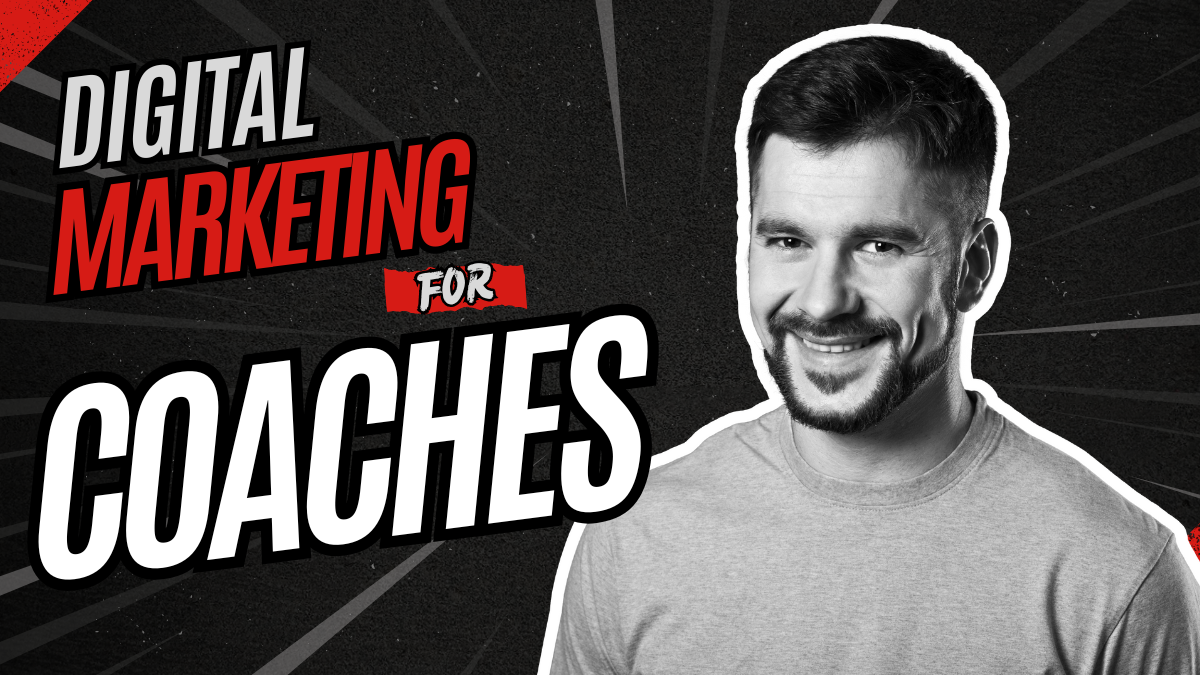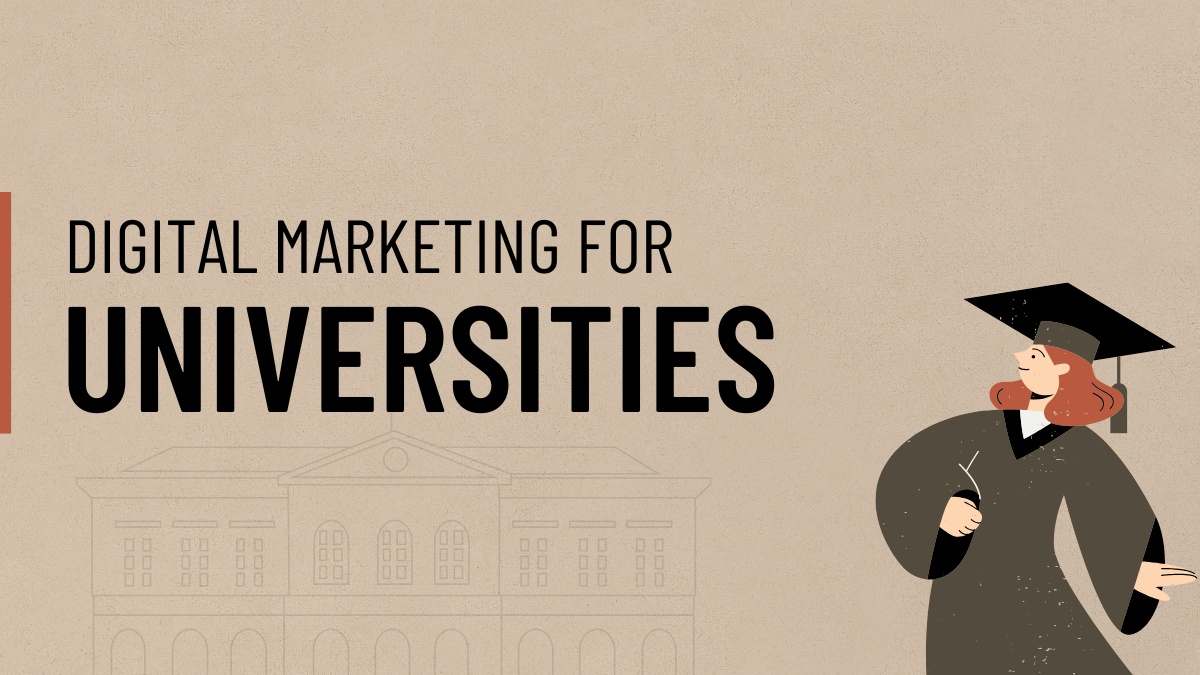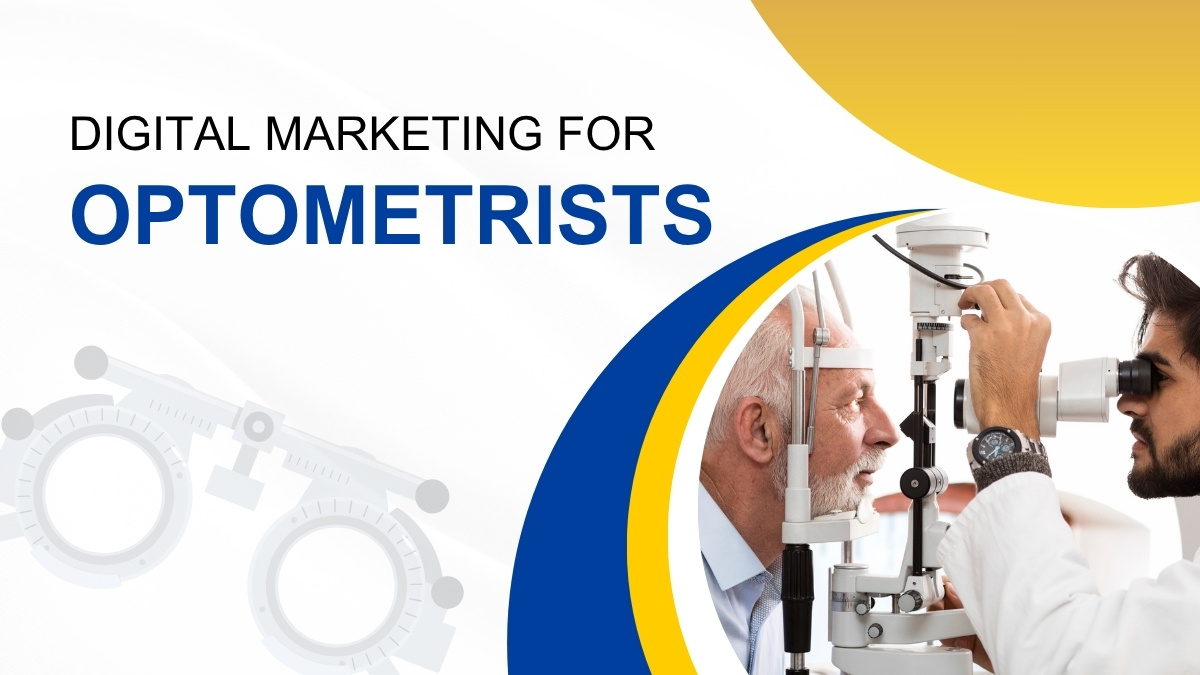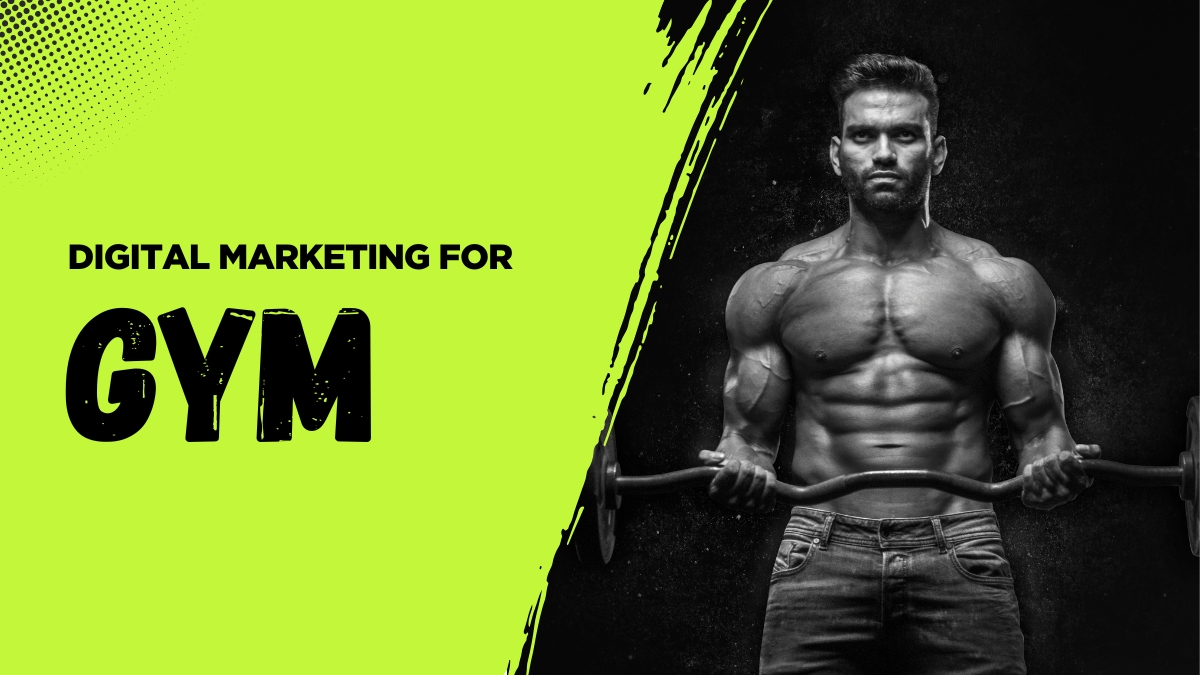
Digital Marketing for Coaches
You're a coach with a powerful message and the skills to change lives. But if your ideal clients can't find you, your impact remains limited. In the past, networking and word-of-mouth were enough. Today, your clients are online, and you need to be there too. That's where digital marketing comes in.
If words like "SEO," "funnel," or "algorithm" make you feel overwhelmed, take a deep breath. Digital marketing is simply the art of connecting with people online. It’s about building relationships, sharing your expertise, and making it easy for those who need you to find you. This guide is your roadmap. We'll break down everything you need to know, from foundational strategies to advanced tactics, into clear, manageable steps. Let's build a bridge from your passion to the people who need it most.
Why Digital Marketing is a Game-Changer for Coaches

Digital marketing isn't just another task on your to-do list; it's the engine for your coaching business. Unlike traditional marketing, it isn't about shouting your message to a broad audience. It's about whispering it to the right person at the right time.
For coaches, this means you can:
-
Your client base is no longer limited to your town or city. You can coach anyone, anywhere in the world.
-
By consistently sharing valuable content, you position yourself as a go-to expert in your niche. This builds immense trust before you ever have a sales conversation.
-
Say goodbye to the "feast or famine" cycle. A solid digital marketing system attracts, nurtures, and converts leads into clients consistently.
-
You can create a loyal following of people who resonate with your message, providing a built-in audience for your programs, workshops, and one-on-one coaching.
Key Digital Marketing Strategies for Your Coaching Business

You don’t need to master everything at once. The goal is to choose a few core strategies, execute them well, and build from there. Here are the most impactful channels for coaches.
Content Marketing: The Foundation of Trust
Content marketing is the practice of creating and distributing valuable, relevant information to attract your ideal client. As a coach, your knowledge is your greatest asset. Content marketing lets you share it generously.
-
What it is: Blog posts, videos, podcasts, free workbooks, webinars, or checklists.
-
How it works: When you provide solutions to your audience's problems for free, you build trust and showcase your expertise. When they decide it's time to invest in a coach, you will be their first choice.
-
Example for coaches: A business coach for freelancers could create a blog post titled "The 5 Most Common Pricing Mistakes New Freelancers Make." A health coach could host a free 30-minute webinar on "How to Meal Prep for a Busy Week."
Social Media Marketing: Where You Build Relationships
Social media is your digital coffee shop—a place to have conversations and build genuine connections. It's where you humanize your brand and create a community.
-
What it is: Posting consistently on platforms where your ideal clients spend their time, such as Instagram, Facebook, LinkedIn, or even TikTok. Content can include tips, client testimonials, behind-the-scenes moments, and interactive polls or questions.
-
How it works: Social media allows your audience to see the person behind the coaching practice. It fosters a "know, like, and trust" factor that is crucial for a personal service like coaching.
-
Example for coaches: A mindset coach could use Instagram Stories to share their daily affirmations and ask their followers to share their own. A career coach could post a weekly tip on LinkedIn about navigating office politics.
Email Marketing: Your Most Valuable Asset
Unlike social media, your email list is an asset you own. It's a direct line of communication to your warmest leads—people who have explicitly asked to hear from you.
-
What it is: Sending regular newsletters, promotional campaigns, or automated sequences to a list of subscribers. You build this list by offering a "lead magnet" (a freebie like a guide or quiz) on your website.
-
How it works: Email allows you to nurture relationships over time in a personal and controlled environment. You can segment your list to send highly targeted messages, increasing the likelihood of conversion.
-
Example for coaches: A relationship coach offers a free "5-Day Communication Challenge" via email. After the challenge, they can introduce their one-on-one coaching program to participants.
Search Engine Optimization (SEO): Helping Clients Find You
SEO is the process of optimizing your website to rank higher in search engine results on platforms like Google. When someone searches for a solution you provide, SEO helps them find you.
-
What it is: Researching keywords your ideal clients are searching for (e.g., "life coach for new moms") and incorporating them into your website pages and blog posts. It also involves technical aspects like site speed and mobile-friendliness.
-
How it works: SEO attracts "inbound" leads—people who are actively seeking help. This makes them highly qualified and more likely to be ready to hire a coach.
-
Example for coaches: An executive coach wants to attract clients in Chicago. They write a blog post titled "How to Find the Best Executive Coach in Chicago" and ensure their website's service page is optimized for that keyword.
Paid Advertising: Accelerating Your Reach
Paid ads, like those on Facebook, Instagram, or Google, allow you to pay to put your message in front of a highly specific audience. It's a way to get faster results and scale what's already working.
-
What it is: Creating ads that target users based on their demographics, interests, and online behavior. You can run ads to grow your email list, promote a webinar, or book discovery calls.
-
How it works: While organic strategies take time, paid ads deliver immediate traffic and leads. They are a powerful tool for testing offers and quickly filling your client roster once you have a proven system.
-
Example for coaches: A parenting coach who has a successful webinar can run Facebook ads targeting parents of toddlers in specific geographic areas, sending them directly to the webinar sign-up page.
Your Step-by-Step Guide to Launching a Digital Marketing Plan

-
Define Your Niche and Ideal Client Persona: Get crystal clear on who you serve. Don't just say "women." Say "women in their 40s who are re-entering the workforce after a long career break and lack professional confidence." Give this persona a name, a job, and specific pain points. Every piece of marketing you create should speak directly to this person.
-
Build Your Online Home Base: Your website is the hub of all your marketing. Use a user-friendly platform like Squarespace, Wix, or WordPress. It must include:
-
A Clear Homepage: Instantly communicates who you are, who you help, and what you offer.
-
An About Page: Tells your story and connects with your audience on a personal level.
-
A Services/Work With Me Page: Clearly details your coaching packages, pricing, and process.
-
A Blog/Content Page: Where you will house all your valuable content.
-
A Contact Page: With a simple way for people to get in touch or book a call.
-
Choose Your Core Marketing Channels (Start Small!): Don't try to be everywhere. Pick ONE content channel (e.g., blogging) and ONE social media channel (e.g., LinkedIn) to start. Choose the platforms where your ideal client is most active and that you genuinely enjoy using.
-
Create a High-Value Lead Magnet: To build your email list, you need to offer something irresistible for free. This could be a PDF guide, a video training, a quiz, or a checklist. It must solve a small but significant problem for your ideal client.
-
Set Up Your Email Marketing System: Choose an email service provider like Mailchimp, ConvertKit, or Flodesk. Create a simple sign-up form for your lead magnet and place it prominently on your website. Write a "welcome sequence"—a series of 3-5 automated emails that deliver your freebie and introduce new subscribers to you and your work.
-
Develop a Consistent Content Calendar: Consistency trumps intensity. Plan your content in advance. Decide you will publish one blog post per month and post on social media three times per week. A simple calendar in a spreadsheet or a tool like Trello can keep you on track.
Advanced Tips and Tools for Scaling Your Efforts

Once you have a consistent system, you can start scaling.
-
Use tools like Zapier to connect your apps and automate repetitive tasks. For example, you can automatically add someone who books a call in Calendly to a specific tag in your email system.
-
Don't create everything from scratch. Turn a blog post into a series of social media posts, a video script, and a newsletter. One piece of "pillar content" can fuel your marketing for weeks.
-
Go beyond basic metrics. Use tools like Google Analytics to understand user behavior on your site. Which pages do they visit most? Where do they drop off? Use social media platform analytics to see which post formats perform best.
-
As you grow, your time is best spent coaching. Hire a VA to help with scheduling social media, formatting blog posts, or managing your inbox. This is often the first and most impactful hire a coach can make.
Common Mistakes to Avoid (With Examples)
-
Mistake: Vague Messaging.
-
Example: A coach's website says, "I help people live their best life." This is too broad and means nothing.
-
Correction: "I am a career coach who helps first-time managers develop the confidence and skills to lead their teams effectively."
-
Mistake: Selling Constantly.
-
Example: Every social media post ends with "Book a call with me!" This feels pushy and turns people off.
-
Correction: Follow the 80/20 rule. 80% of your content should be pure value (tips, insights, education). Only 20% should be promotional.
-
Mistake: Inconsistency.
-
Example: You get inspired and post on Instagram every day for a week, then disappear for a month.
-
Correction: Create a realistic schedule you can stick to, even if it's just one post per week. Consistency builds trust and keeps you top-of-mind.
How to Track Success and Optimize Your Strategy

You can't improve what you don't measure. Review these key performance indicators (KPIs) monthly to see what's working.
-
Website Traffic: Is it increasing? Which sources (social, Google, etc.) bring the most visitors? (Tool: Google Analytics)
-
Email List Growth: How many new subscribers did you get this month? What is your email open rate and click-through rate? (Tool: Your Email Provider's Analytics)
-
Social Media Engagement: Look beyond follower count. Which posts get the most comments, shares, and saves? This tells you what content your audience loves. (Tool: Platform-specific analytics)
-
Conversion Rate: This is the most important metric. Of the people who visit your "Work With Me" page, how many book a discovery call? What percentage of discovery calls turn into paying clients? Tracking this shows the real-world impact of your marketing.
Use this data to make informed decisions. If a blog post about imposter syndrome brought in 10 new email subscribers, write another post on a related topic. If your Instagram Reels get 10x the engagement of static posts, focus more on video. Digital marketing is a continuous loop of creating, measuring, and refining.
You have a unique ability to guide people toward their goals. By embracing digital marketing with a strategic, step-by-step approach, you can ensure your message reaches those who are waiting to hear it. Start today, stay consistent, and watch your impact—and your business—grow.
FAQs: Digital Marketing for Coaches
What exactly is digital marketing, and why do I need it as a coach?
Digital marketing is simply any marketing you do online to connect with potential clients. This includes social media, your website, emails, and online content. It's vital for coaches because it allows you to break free from geographical limits and connect with your ideal clients anywhere in the world. It helps you build trust, establish yourself as an expert, and create a steady stream of clients who are looking for exactly what you offer.
I'm a coach, not a marketer. How do I even get started?
Getting started is simpler than you think. Don't try to do everything at once.
-
Define your ideal client: Who do you help and what problem do you solve? Be specific.
-
Pick one social media platform: Choose the one where your ideal clients spend their time (e.g., LinkedIn for corporate clients, Instagram for wellness clients).
-
Start creating simple, helpful content: Share tips, answer common questions, or tell stories related to your coaching niche.
-
Focus on consistency, not perfection. The goal is to show up regularly and provide value.
What are the best online platforms for coaches to use?
There's no single "best" platform—it depends entirely on where your ideal client is.
-
LinkedIn: Excellent for executive, career, and business coaches who target professionals.
-
Instagram: Great for life, wellness, and mindset coaches who can use visuals, Stories, and Reels to connect with their audience.
-
Facebook: Useful for building communities through Facebook Groups and connecting with a broad range of demographics.
-
A personal blog/website: This is your online home base and is essential for establishing credibility and capturing leads.
Start with one social platform and your website. You can always expand later.
How much time should I realistically spend on digital marketing each week?
When you're starting, aim for 3-5 hours per week. This gives you enough time to plan your content, write a post or two, engage with your audience, and review what’s working. The key is consistency. It's better to spend 30 minutes every day than to try and cram 5 hours into one day and then burn out. As you grow, you can adjust this or hire help.
Do I really need a website to succeed as a coach?
Yes, we strongly recommend it. While you can get clients from social media alone, a website acts as your professional home base. It’s the one online space you completely own and control. It gives you credibility, allows you to showcase your services in detail, and most importantly, it’s the best place to build your email list, which is your most valuable marketing asset.
How can I tell if my digital marketing is actually working?
Don't get lost in vanity metrics like follower counts. Focus on numbers that translate to business growth:
-
Website Visits: Are more people finding your website over time?
-
Email List Growth: Are you getting new subscribers each week/month?
-
Engagement: Are people commenting on your posts, asking questions, and saving your content?
-
Discovery Calls Booked: This is the most important metric. Are people moving from your content to booking a consultation call with you?
Track these simple metrics monthly to see what’s working and what’s not.
What are the most common marketing mistakes coaches make?
-
Being too generic: Trying to help "everyone" means you connect with no one. A specific niche (e.g., "I help new female entrepreneurs overcome imposter syndrome") is much more powerful.
-
Selling all the time: Your content should be about 80% helpful and 20% promotional. Focus on giving value first to build trust.
-
Inconsistency: Posting a lot for one week and then disappearing for a month confuses your audience. Create a simple, sustainable schedule and stick to it.
-
Ignoring your email list: Social media platforms can change their rules overnight. Your email list is an asset you own. Nurture it
Conclusion
Embarking on the path of digital marketing can feel like a huge undertaking, but it doesn't have to be. As we've seen, it all comes down to a few core ideas: understanding your ideal client, sharing your wisdom generously, and showing up consistently where it matters most.
By starting with a simple website, choosing one or two social platforms, and building an email list, you create a powerful system for connecting with the people who need your coaching.
Remember, the goal isn't to become a marketing guru overnight. It's about taking small, manageable steps to build a bridge between your unique expertise and the clients you're meant to serve. You have a valuable gift, and digital marketing is simply the vehicle that helps you share it with the world.
Your journey to a thriving coaching business begins with a single step. Choose one action from this guide—just one—and commit to it this week. Whether it's drafting your ideal client profile, writing your first blog post, or creating a social media content plan, that first step is the most important one. Your future clients are out there waiting. Go connect with them.
30 minutes
Expert Consultation
Terms & Agreements
By booking a free 30-minute consultation, you agree to our terms, including scheduling, cancellation policies, and confidentiality. The session provides expert advice without guarantees of specific outcomes or results.






Leave a Reply
Your email address will not be published. Required fields are marked *